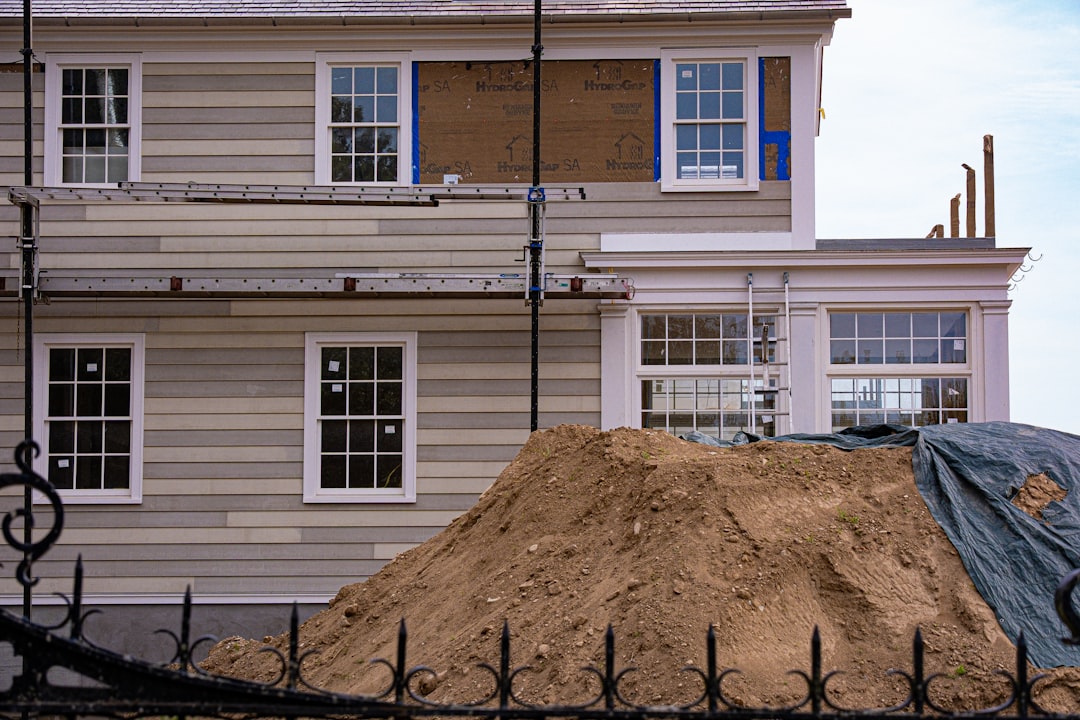Comprehensive Guide to Downspout Installation Costs
Price source: Costs shown are derived from our proprietary U.S. construction cost database (updated continuously from contractor/bid/pricing inputs and normalization rules).
Eva Steinmetzer-Shaw
Head of Marketing
The True Cost to Install Downspouts in 2026: A Guide for Contractors
In 2026, professional downspout installation costs average between $2–$4 per linear foot and $6–$68 per linear foot per linear foot. For a typical one-story home, expect total costs to range from $315–$1,070. The installation price depends on material choice and architectural complexity. Larger homes or unique design requirements may increase these estimates.
Detailed Cost Breakdown of Downspout Installation
Estimated Price Range
The cost of installing downspouts varies based on regional building codes and local climate conditions, generally ranging from $6–$68 per linear foot per linear foot. These fluctuations are influenced by labor demands and site-specific conditions.
Material Options and Costs
- Vinyl: $2–$3 per linear foot per foot; economical but less durable in high UV areas
- Galvanized Steel: $5–$11 per linear foot per foot; requires maintenance but offers strength
- Aluminum: $7–$30 per linear foot per foot; excellent for corrosion resistance
- Copper: $23–$68 per linear foot per foot; costly but offers unmatched longevity
- Architectural Metals: $25–$40 per linear foot per foot; used for high-end projects
Labor Cost Considerations
Labor accounts for 40–55% of overall installation costs. Key factors affecting labor expenses include:
- Building height and access challenges
- Complex eave and drainage configurations
- Existing system removal
- Use of special equipment such as scaffolding
Accessories and Additional Costs
- Splash blocks: $10–$50 each each
- Leaf guards: $3–$7 per downspout per downspout
- Decorative enhancements: $20–$120 each each
- Underground connections: $8–$15 per linear foot per foot, plus trenching costs
Regional Price Variations
- Differences in local labor rates and permit fees
- Specific environmental regulations
- Insurance requirements, especially in coastal areas
Streamlining Estimates with CountBricks Technology
CountBricks offers cutting-edge AI-driven tools, providing real-time pricing data, labor cost matching, and complete project estimation to help prevent budget overruns.
CountBricks: Efficient Estimating Workflow
- Upload project details for immediate analysis
- Confirm materials and accessory choices
- Receive comprehensive and prompt cost estimates
- Generate digital quotes and invoices with ease
Expert Tips to Manage Installation Costs
- Coordinate gutter and downspout projects to optimize expense
- Opt for standard colors to avoid additional fees
- Adjust the landscape to minimize downspout lengths when possible
- Install leaf guards early to reduce long-term spending
- Access CountBricks for accurate material comparisons
Case Study: Houston Bungalow Revamp
In this real-world example, an aluminum downspout installation was completed using CountBricks’ technology. The process achieved an efficient $592 (case study estimate) estimate, ensuring the project stayed within budget and on schedule.
Why Choose CountBricks for Precision Estimation
- Frequent material cost updates
- User-friendly voice command operations
- Automated takeoff tools for precision
- Instant updates for change orders
- Comprehensive process from estimation to billing
Get an Instant Downspout Estimate
For efficient bid optimization and project management, CountBricks delivers unparalleled detail and precise case evaluations. Start your estimate today at CountBricks.com.
Added Value: Strategic Downspout Layout with CountBricks
Effective positioning of downspouts boosts efficiency and cuts costs. CountBricks assesses the ideal downspout locations using blueprint dimensions, typically advising every 30–40 feet to balance cost-effectiveness with functionality.
Three Effective Layout Adjustments
- Align downspouts with existing drainage systems
- Consolidate larger roof sections into fewer downspouts
- Add clean-outs on longer runs to lessen maintenance demands
Builder Success Story: Transformative Upgrade
In a recent project, CountBricks identified suboptimal downspout placement. Adjustments cut the required number of downspouts and associated costs, achieving performance targets efficiently.
Why Contractors Trust CountBricks
- Offers compliance with detailed drainage analysis
- Real-time adaptation of costs for materials and sizing
- Integrates budgeting with gutter and soffit specifics
CountBricks empowers builders with a data-driven approach to downspout cost planning. Enhance decision-making with precision tools and insights—partner with CountBricks today.

